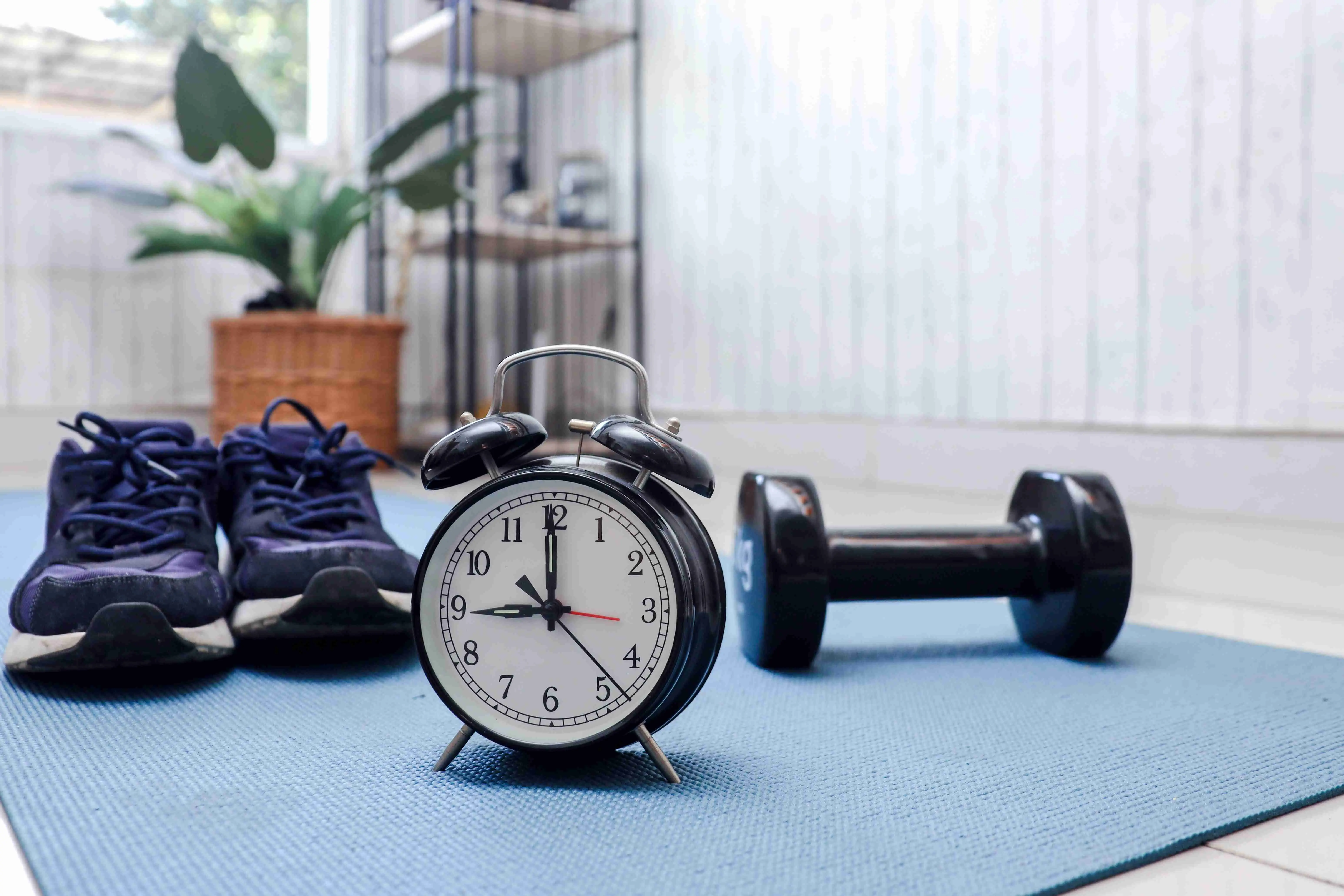It’s a known fact that exercise is a very healthy habit that everyone needs to include in their day to lead a generally more fulfilling life; however, sometimes people find that they’re experiencing either an increase or decrease in their sleeping quality based on the timing of their exercise, which makes it crucial to understand the impact of different exercise timing on sleep quality.
How Exercise Impacts Sleep Quality
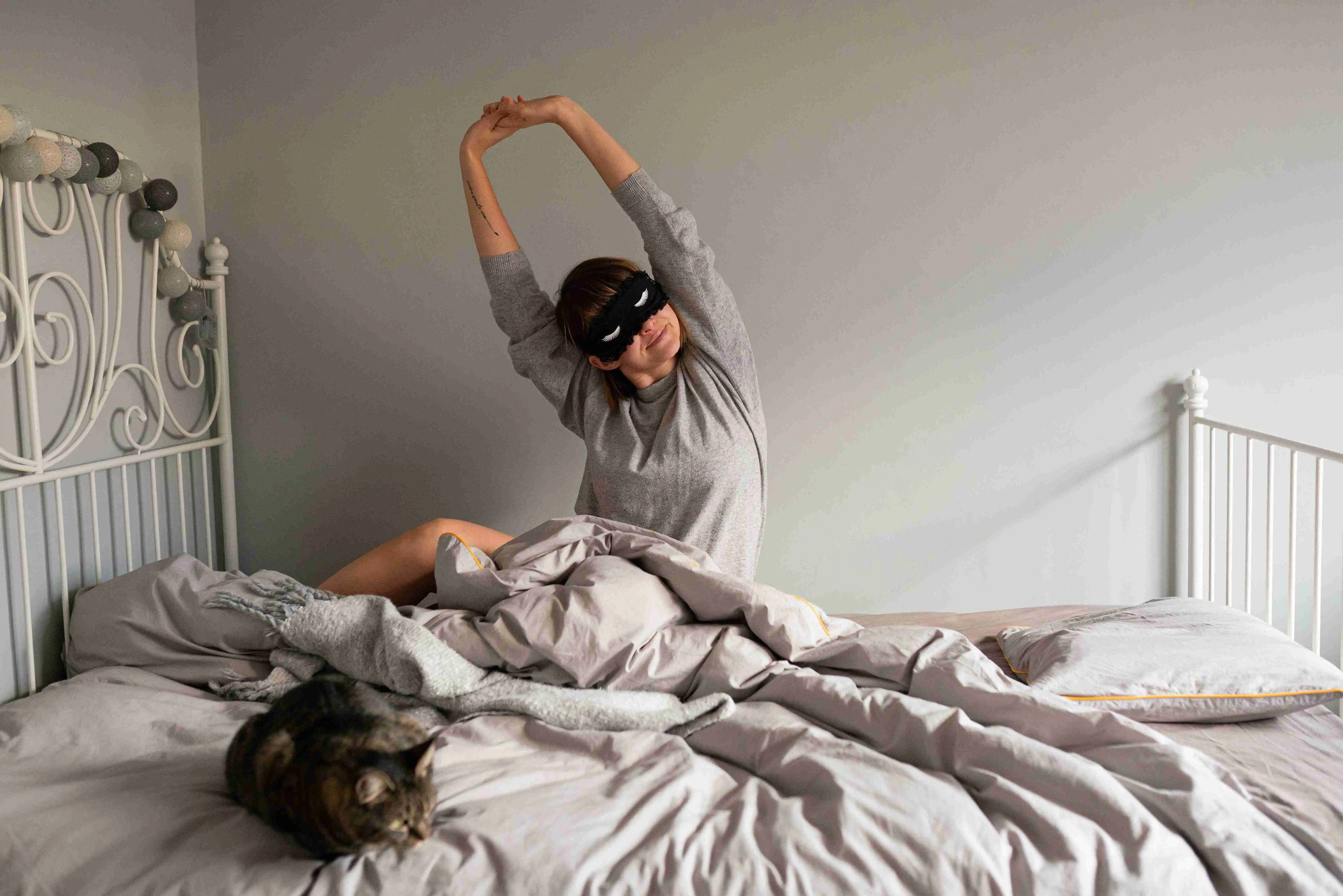
Physical activity significantly impacts sleep because it helps regulate the body's internal clock, also known as the circadian rhythm; it helps reduce anxiety and stress, both of which can interfere with sleep.
Additionally, exercise can increase the production of endorphins, which are natural chemicals in the body that promote feelings of happiness and relaxation.
Check out How Exercise Affects Sleep.
Why Timing Matters
Regarding exercise timing, it is important to note that different timings affect sleep quality differently, as vigorous exercise right before bedtime can negatively affect sleep quality.
Exercise increases the body's core temperature and triggers the release of adrenaline, which complicates falling asleep. Therefore, it's advisable to complete your workout at least a few hours before bedtime, allowing the body to cool down and adrenaline levels to drop.
Exercise Times Pros and Cons
Exercising at different times of the day can have a significantly different impact on our sleep, energy level, and overall well-being, so it’s important to be aware of the benefits and drawbacks of working out at different times of the day to know the best time to exercise for sleep.
Morning Exercise
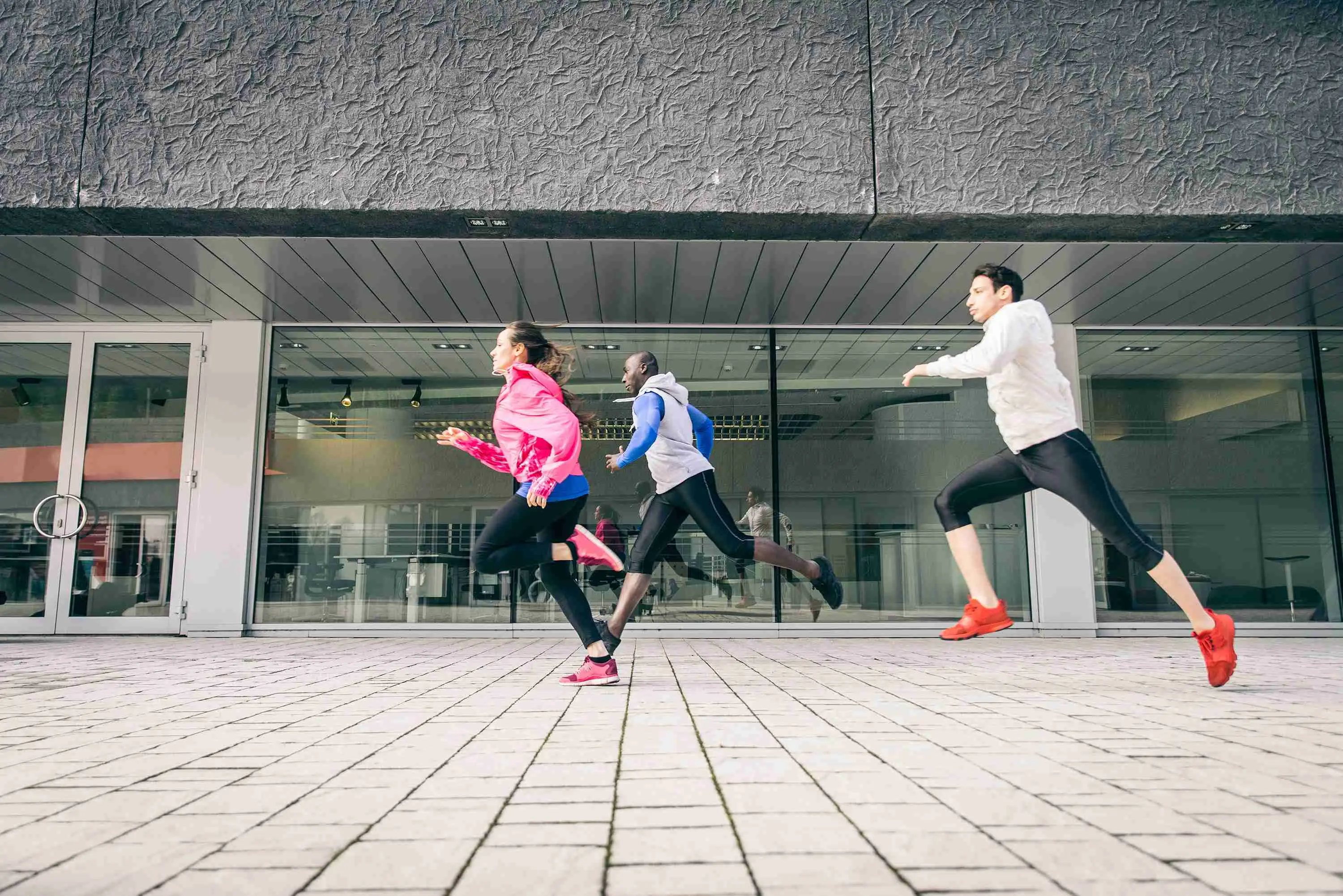
Pros
- Boosts Metabolism: Working out first thing in the morning kickstarts our metabolism, leading to increased calorie burning throughout the day, which makes it the best time to work out for weight loss. This can be particularly beneficial for individuals looking to manage their weight or improve their fitness levels.
- Relieves Stress: One of the reasons why the morning time is considered by many the best time to work out is because of its ability to relieve stress. Regular physical activity has been proven to reduce stress levels and enhance our overall mood. When we exercise, our bodies release endorphins and decrease cortisol levels, which relieve stress.
- Enhances Mood: Morning exercise also has a direct impact on our mood. Engaging in physical activity releases endorphins, which are neurotransmitters that promote feelings of happiness and well-being. By starting our day with exercise, we can improve our mood and increase our overall happiness levels.
- Regulates your Appetite: One of morning exercise benefits is that it helps to regulate appetite throughout the day, as it leads to increased calorie burn and reduced appetite. This can be particularly beneficial for individuals who are looking to lose or maintain weight.
- Consistency: By making it a habit to work out in the morning, you are more likely to stick to your fitness routine. You can consistently prioritize your health and fitness goals because unexpected events or schedule changes are less likely to interrupt morning workouts.
- Better Sleep Quality: Regular physical activity in the morning can help regulate your body's circadian rhythm or sleep cycles, as there's a strong connection between exercise timing and circadian rhythms. it also helps reduce stress and promote relaxation, which makes it easier to fall asleep faster and stay asleep at night, additionally, it reduces the symptoms of many sleep disorders, such as Insomnia and sleep apnea.
Cons
- Requires Waking Up Early: For many people, getting out of bed in the morning can be a challenge, especially if they are not naturally early risers. Having to set an alarm and force oneself to wake up can lead to feelings of grogginess and resistance. This can make it difficult to start the day with enthusiasm and energy, which may impact the overall effectiveness of the workout.
- Lower Energy Levels: After a night of rest, the body may still be in a state of sleepiness and not fully awake yet. This can result in decreased physical energy and mental health, making it harder to perform at one's best during the workout. Additionally, if someone is not able to fuel their body properly before exercising in the morning, they may experience fatigue or a lack of stamina during their workout.
Afternoon Exercise
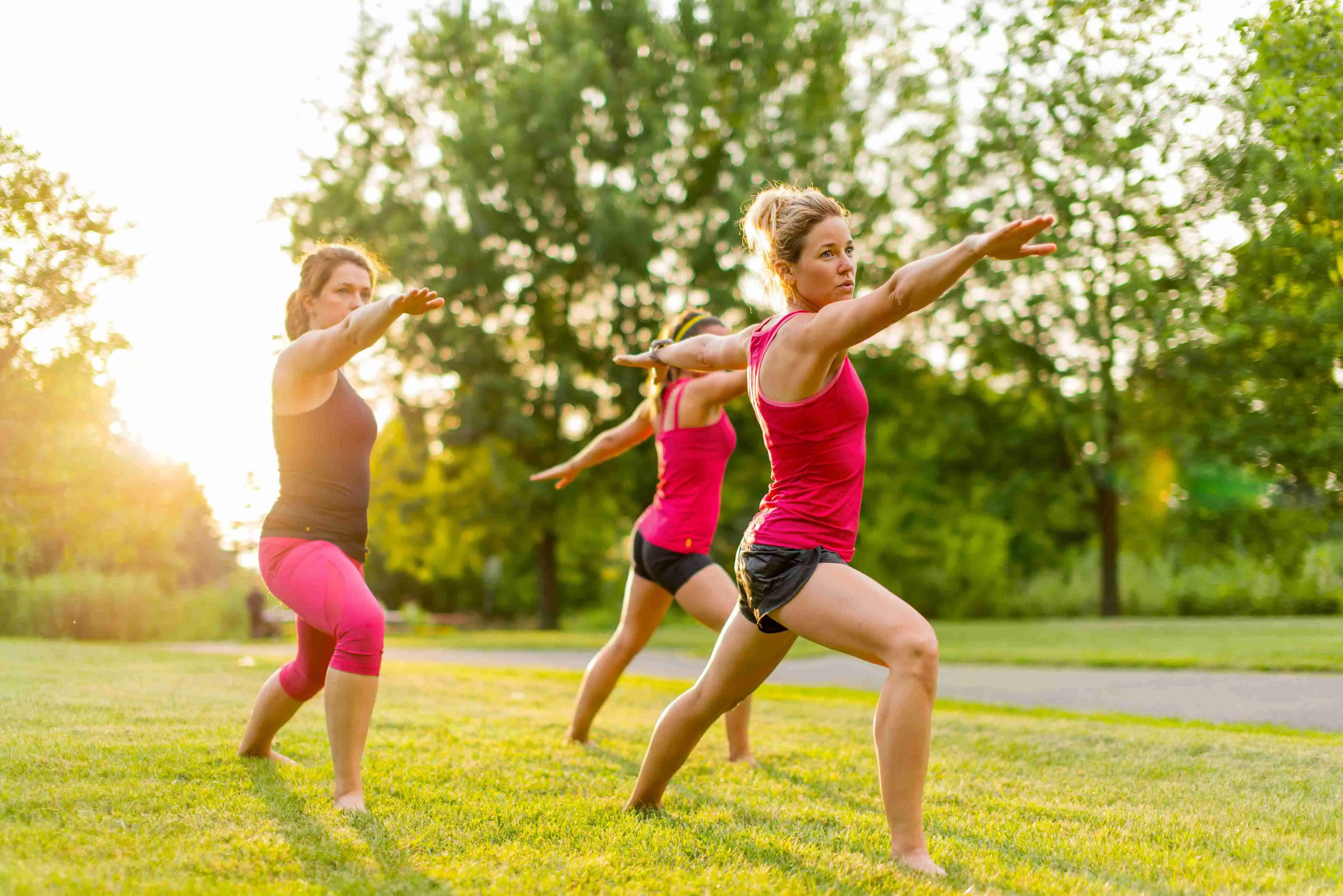
Pros
- Boosts Energy: Afternoon exercise helps to increase blood flow and oxygen circulation, which in turn stimulates the production of endorphins, the body's natural feel-good hormones. These endorphins not only improve mood but also provide a surge of energy.
- Peak Performance: By engaging in physical activity during this time of day, individuals can take advantage of their body's natural circadian rhythms, as people experience a peak in physical performance during the late afternoon or early evening.
- Better Reaction Time: Regular physical activity has been proven to improve cognitive function and enhance brain health. When exercise is performed in the afternoon, it can help sharpen mental acuity and improve reaction time. This can be particularly beneficial for tasks that require quick reflexes or decision-making, such as sports, driving, or even work-related activities.
- Regulate the Circadian Rhythm: One advantage of afternoon exercise is its alignment with our circadian rhythm, the internal clock that regulates our sleep-wake cycle, because our body temperature and muscle strength are at their peak during the afternoon, making it an ideal time to engage in physical activity.
- Alleviate the Midday Slump: Exercising in the afternoon can help combat the midday slump that many individuals experience, boosting energy levels and improving productivity for the remainder of the day.
Cons
- Potential Disruption: One of the cons of afternoon exercise is the potential disruption it can cause to our daily routine. Afternoon exercise may require rearranging our schedule, which can lead to a disruption in our work or personal commitments. This can be particularly challenging for those with a busy schedule or those who have strict deadlines to meet.
- Increased Appetite: Physical activity can stimulate hunger, and exercising in the afternoon may make us more susceptible to overeating or making unhealthy food choices. This increased appetite can be especially problematic for individuals who are trying to manage their weight or follow a specific diet plan. Additionally, the timing of afternoon exercise may coincide with snack or meal times, making it difficult to resist indulging in high-calorie foods.
- Might Interfere With Your Bedtime: Engaging in physical activity close to bedtime can increase your heart rate and stimulate your body, making it more difficult to fall asleep. This is because exercise releases endorphins and raises your body temperature, both of which can make it harder to relax and wind down for sleep.
Night Exercise

Pros
- Stress Reduction: Evening exercise can help reduce stress levels and promote relaxation. Exercise triggers the release of endorphins, which are known as "feel-good" hormones. These endorphins not only elevate mood but also alleviate stress and anxiety.
- Higher Body Temperature: Body temperature is at its peak in the late afternoon or evening, making it an ideal time for physical activity. A higher body temperature can enhance the efficiency of muscles and increase flexibility, thereby reducing the risk of injury. Moreover, elevated body temperature can improve blood circulation and oxygen delivery to various tissues, enhancing overall exercise performance.
- Easier to Fit in Your Day: Evening exercise can also be a convenient option for individuals with busy schedules. Many people find it challenging to carve out time for physical activity during the day due to work or other commitments. By choosing to exercise at night, individuals can avoid conflicts with their daily obligations and have a dedicated time for fitness.
Cons
- Disrupted Sleep: Exercise and sleep problems often go hand in hand, as disrupted sleep is one of the biggest drawbacks of night exercise. When we exercise at night, our body temperature rises, and it takes some time for it to return to normal. This can make it difficult for us to fall asleep and can lead to restless nights.
- Lower Energy Reserves: Throughout the day, our energy levels naturally decrease as we go about our daily activities. By the end of the day, our energy reserves may already be depleted, making it challenging to perform intense exercise.
- Risk of Skipping: After a long day at work or other responsibilities, it can be tempting to skip the gym and opt for relaxation instead. This can create a habit of inconsistency and hinder progress towards fitness goals.
Choosing the Best Time Based on Individual Factors
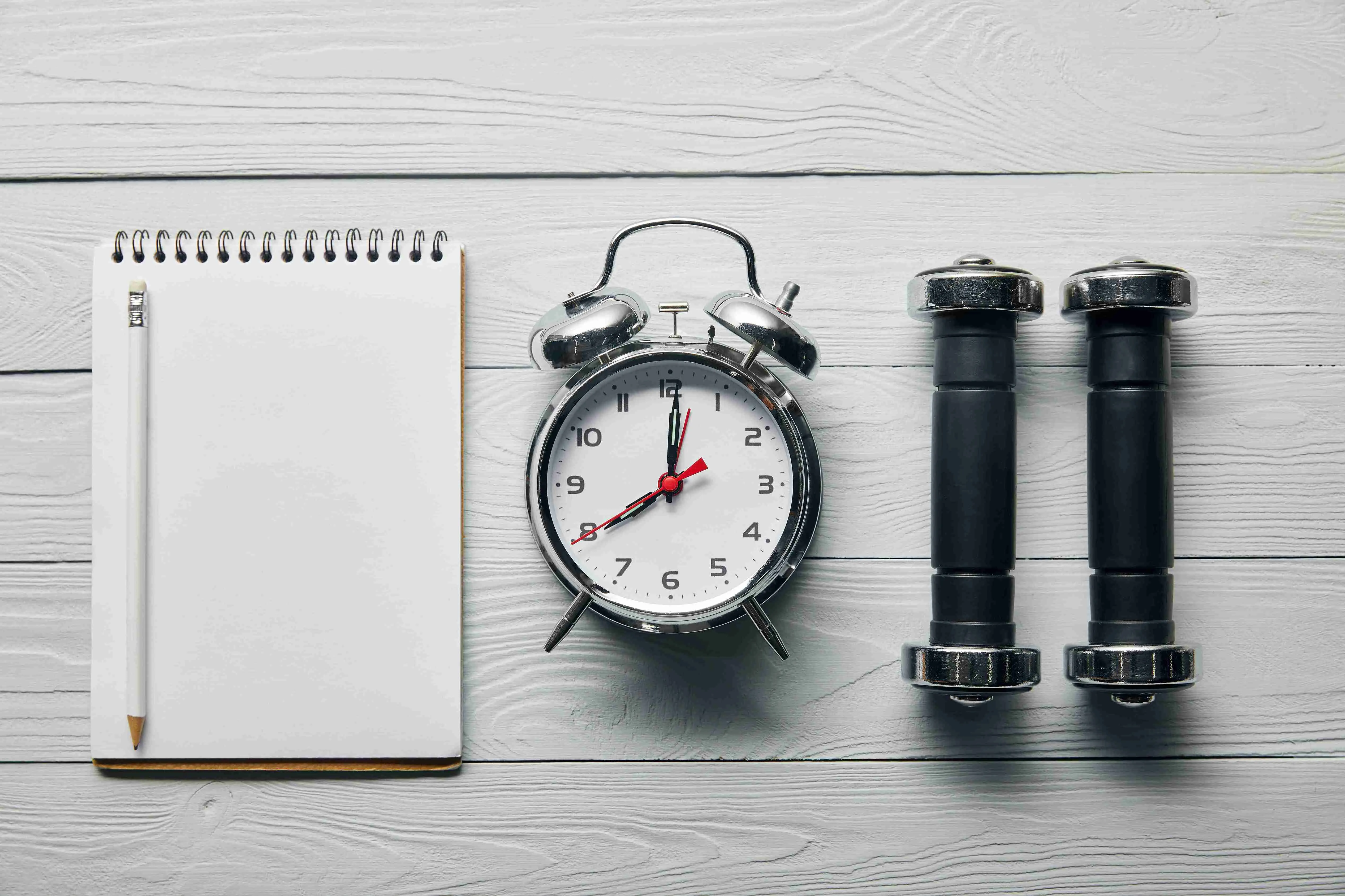
Many elements can help you decide which exercise time is best for you, and some of the most important factors that determine that decision are personal goals and preferences.
Personal Circadian Rhythm
The circadian rhythm refers to the body clock that regulates various physiological processes, including sleep-wake cycles. Understanding one's circadian rhythm can help determine the optimal time for exercise.
For morning people, exercising in the early hours can provide a burst of energy to kickstart the day. On the other hand, night owls may find that exercising in the evening helps them release stress and unwind before bed.
Lifestyle and Schedule
An individual's lifestyle and schedule are another factor to consider when choosing the best time to exercise. Some individuals may have demanding work schedules or family commitments that make it challenging to find time for exercise during certain parts of the day. It may be easier to exercise during lunch breaks or evenings when there is more time.
Energy Levels
Some individuals may find that they have higher energy levels in the morning, making it an ideal time for them to exercise. This can provide a boost to their metabolism, aiding in weight loss. On the other hand, some people may feel more energized in the evening, which can be beneficial for muscle-building and endurance training.
Fitness Goals
- Weight Loss: Exercising in the morning on an empty stomach can lead to greater fat burning. This is because your body has already used up its glycogen stores overnight, so it taps into fat reserves for energy. Additionally, morning exercise can help regulate appetite throughout the day and prevent overeating.
- Muscle Building/Strength: Many individuals find that their strength and stamina peak in the afternoon or early evening, making it an ideal time for weightlifting or high-intensity interval training. This allows them to push harder and lift heavier weights, leading to greater gains in muscle mass and strength.
- Endurance: For those with higher endurance in the morning, early workouts can provide a boost of energy and set a positive tone for the day. Conversely, individuals with higher endurance in the evening may find that exercising later in the day allows them to push themselves further and achieve better results.
The Best Exercises That Enhance The Quality of Sleep
Various exercises enhance the quality of sleep, and each exercise has its unique benefits, from reducing stress and anxiety to promoting relaxation and regulating the body's internal clock. By incorporating these exercises into our daily routines, we can enjoy a more restful and rejuvenating sleep.
Aerobic
Engaging in aerobic exercises such as jogging, swimming, or cycling can be particularly effective in enhancing sleep quality. These activities increase the heart rate and release endorphins, which help reduce stress and anxiety, leading to a more relaxed state before bedtime.
Additionally, aerobic exercises promote better blood pressure and oxygenation, which can contribute to deeper and more restful sleep.
Yoga
Yoga combines physical movements, deep breathing, and meditation, making it one of the best exercises for sleep. The gentle stretching and mindful breathing exercises help calm the mind and relax the body, promoting a sense of tranquility before sleep, that's why yoga is considered a great exercise for insomnia.
Incorporating yoga into a bedtime routine can help reduce muscle tension and alleviate stress, resulting in a more peaceful and better sleep hygiene and uninterrupted sleep.
Weightlifting
Weightlifting, although not commonly associated with improving sleep quality, can also have a positive impact. Resistance training exercises like weightlifting increase muscle strength and muscle power, in addition to increasing the production of testosterone and improving overall sleep patterns.
Weightlifting can help regulate the body's circadian rhythm, making it easier to fall asleep and wake up at regular times. Additionally, weightlifting promotes the release of growth hormones that aid in muscle repair during sleep, leading to a more rejuvenating rest.
Walking
Something as simple as walking can significantly improve sleep quality. You can easily incorporate walking, a low-impact aerobic exercise, into your daily routine. During the day is considered the best time to walk for better sleep, as it can help reduce stress levels and clear the mind, making it easier to unwind at night.
Moreover, exposure to natural daylight during walking can help regulate the body's internal clock, promoting better sleep-wake cycles.
Check the Best Exercise for Better Sleep.
FAQs
Is it good to exercise before bed?
Some individuals find that exercising at night helps them sleep better, as it helps to release any built-up tension or stress from the day. On the other hand, some individuals may experience difficulty falling asleep if they exercise too close to bedtime, as their body may still be in an active state. Additionally, how many hours before bed should you exercise differs from one person to another.
Is it better to work out in the morning or at night?
Choosing the best time to exercise for better sleep can greatly impact the quality of your rest. It is important to consider your own body's natural rhythms and preferences when determining the ideal exercise time. Generally, exercising in the morning or afternoon is recommended, as it can help to energize and wake you up for the day ahead.
How much exercise do I need for better sleep?
Exercise duration and exercise intensity needed for better sleep change from one person to another; however, engaging in moderate-intensity exercise for at least 150 minutes per week is the recommended exercise capacity. This could be achieved through activities such as brisk walking, jogging, cycling, or swimming. Alternatively, engaging in 75 minutes of vigorous-intensity aerobic exercise can also lead to improved sleep.
When does working out interfere with sleep quality?
Exercise routine is generally considered beneficial for overall health and well-being, but there are instances when it can interfere with sleep quality. One such instance is when exercise is performed too close to bedtime. Engaging in rigorous physical activity right before sleep can increase arousal levels, making it difficult for the body to relax and prepare for rest.
Check out Sleeping After Exercise.
Conclusion
The best time to exercise for better sleep is an important consideration for individuals looking to improve their sleep quality, as each exercise time has its own set of pros and cons that will change your sleep pattern drastically, and finding the right time to exercise can greatly contribute to a restful and rejuvenating sleep experience.
Karen Barnard
Karen is a Human Movement Science expert and a certified sports nutrition and massage therapist. At Sleepiverse, she combines her passion for human movement science and sleep health to educate herself and her readers about healthier sleep. In addition to writing articles, Karen manages a fitness studio offering private training, athletic conditioning, and sports massage therapy. She focuses on providing people with a holistic environment for people to reach their health goals, often incorporating stretch therapy to promote mental tranquillity and help people improve their sleep.


